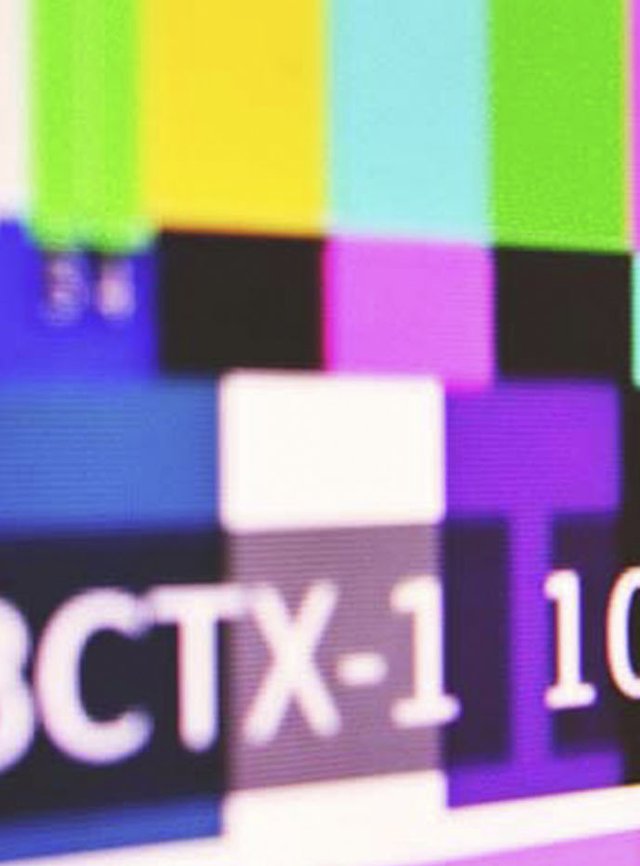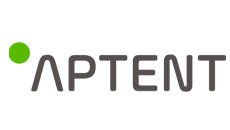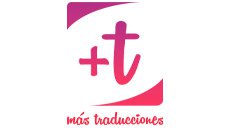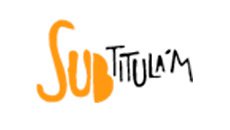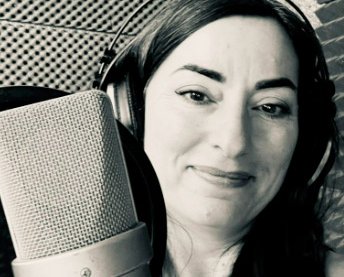Audiovisual Translation Master
The Master in Audiovisual Translation at Universidad Europea is a 10-month programme taught in bilingual format (English and Spanish). The aim is to ensure you have the skills to lead and have successful careers in the audiovisual translation sector, including translating video games, simulations, series, short films, feature length films, YouTube videos, etc.
As well as being taught by experts in the sector, the audiovisual translation master has an international element and includes a trip to London to see first-hand some of the world’s leading audiovisual studios. In addition, with a focus on experiential learning, throughout the programmes you will be able to take part in real projects such as live translations, and use our state-of-the-art studios and labs.
Private degree issued by Universidad Europea de Valencia
| Campus-based | Classes in Bilingual-ES/EN | Valencia | 10 months, 60 ECTS | Start: 16 oct. 2026 | School of Social Sciences and Communication |
Testimonial
Study plan
What will you learn in the Master in Audiovisual Translation?
Learn all the techniques to become a translator of audiovisual products (films, series...): dubbing, subtitling, subtitling for deaf people, audio description, video game translation, using all the technical means available and doing real practice in dubbing and subtitling studios.
Syllabus
- Module 1. Introduction to Audiovisual Translation (3 ECTS)
This module contextualises HAT in the industry in which the student will have to learn to operate. At the end of the module, students will be aware of the translator's place in the value chain of the audiovisual industry and of their professional possibilities in the audiovisual translation and media accessibility sector. - Module 2. Linguistic correction for HAT (3 ECTS)
This module explores in depth the aspects of the Spanish language that the future translator must be able to apply to audiovisual translation, such as chronolects, geographical dialects, registers and sociolects. In addition, emphasis will be placed on the translation of jargon. - Module 3. Dubbing and Voiceover for audiovisual translators (1 ECTS)
This module is a course in dubbing, voice-over and self-recording applied to Audiovisual Translation taught by collaborating companies. - Module 4. Translation and adjustment for dubbing (8 ECTS)
Throughout this module, dubbing will be studied in depth as a form of audiovisual translation and as a professional activity. Theoretical sessions will be complemented with practical sessions with different formats and technologies to train the resolution of specific problems. It is assessed by means of the partial defence of the Final Master's Project (PFM). - Module 5. Subtitling (6 ECTS)
Current panorama, conventional subtitling standards, restrictions and technologies applied to conventional subtitling. It is assessed by means of a partial defence of the PFM. - Module 6. Subtitling for the deaf (3 ECTS)
Current panorama, SPS standards and application to different distribution platforms. It is assessed by means of a partial defence of the PFM. - Module 7. Audio Description (3 ECTS)
Standards and conventions of AD and application. It is assessed by means of the partial defence of the PFM. - Module 8. Video Game Localisation (3 ECTS)
Introduction to video game localisation and tools related to this activity. - Module 9. Work placement in a company (15 ECTS)
After collaborating with companies in the sector for a period of 100 hours, the student will be assessed by the company and must submit a report to the university to validate this assessment. - Module 10. End-of-Master's Degree Project (15 ECTS)
Translation project in the four modes of audiovisual translation in which the student will apply all the tools and strategies acquired to an audiovisual content of their choice. Students will defend their work, first partially in front of their tutors at the end of the assessable modules and then in front of a panel of experts and working professionals, and must demonstrate a level of competence in the four areas that will enable them to face the job market in any of them.
Internships
Work placements are a key element in your training. Gaining experience after what you have learnt in your degree is the best way to enter the labour market.
To do an internship in a company, you will need to have passed 50% of the credits and enrol in the course before starting your internship. These internships are monitored by the company and the internship teacher, as well as the completion of interim and final reports for evaluation.
This programme is practical from day One. Even so, the internships in companies and with professional translators will help you to learn more about certain aspects of the profession, such as the dynamics of assignments, the relationship with dubbing studios, time management, budgets, invoicing and coordination.
Once the curricular internships have been completed, it is possible to do extracurricular internships in consultation with the Internship Department.
Admissions
Start your future at Universidad Europea
You can become a student at Universidad Europea in three easy steps.
1
Admission exams
Start your admission process by calling +34 961113845 or request information and our advisors will contact you.
2
Place reservation
Once you have been admitted, secure your place by paying the reservation fee.
3
Enrollment
Submit the required documents to formalise your enrollment.
Scholarships and financial aid
We want to help you. If you want to study at Universidad Europea, you will have at your disposal a wide selection of own and official scholarships.
Credit recognition and transfers
You don’t have to stick with something you don’t like. That’s why we’ve designed specific plans for credit recognition and transfers.
Request your online credit recognition review, transfer your academic file and start studying at Universidad Europea.
Profile of new entrants and degree access routes
Our students are graduates and final-year students of Translation, Philology, Audiovisual Communication, Advertising, Journalism, as well as professionals with a good command of at least two languages.
In short, they are people with a passion for languages and who are attracted to audiovisual translation in one of its specialities (dubbing, subtitling, subtitling for the deaf, audio description, video game translation).
Proceso de admisión
The admission process for the Universidad Europea de Valencia's Graduate School programmes is open all year round, although enrolment in any of its programmes is subject to the existence of vacancies.
If you would like personalised advice from the Postgraduate Admissions team, you can go to our university campus at Paseo de la Alameda 7, or contact us at:
- Telephone (+34) 96 104 3883.
- E-mail POSTGRADO.VALENCIA@UNIVERSIDADEUROPEA.ES.
- Once you have been informed, you must provide the required documentation:
- Application for Admission.
- Copy of DNI or NIE.
- CV.
Faculty
The faculty is made up of practising professionals who offer you their day-to-day work in connection with the subjects studied in the degree programme.
Our teaching staff
- María Ferrer
Director of the Master's degree in Audiovisual Translation
PhD in Audiovisual Translation.
Translator and adjuster since 1998. Her professional career began with the subtitling of Japanese films and, shortly afterwards, with the translation and adaptation of anime and TV fiction from English and French. In 2016, she obtained her PhD and began her teaching career. He has participated in such Degrees as Akira, The Mentalist, The 100 and A Series of Catastrophic Misfortunes. She currently combines teaching with voice work. - Vanessa Pérez
Director of the Master's degree in Audiovisual Translation
PhD in Audiovisual Translation.
After several years as a translator in the multimedia localisation sector, she obtained her PhD in 2021 and has now devoted herself entirely to university teaching and research.
Some of the teaching staff
- Frederic Chaume
Professor of Audiovisual Translation. - Gabriela Scandura
Translator and adaptor into neutral Spanish. The marshal. - Giselle Spiteri
Audiovisual translator for Italian TV. Big Bang Theory. - Quico Rovira-Beleta
Translator of Marvel and Disney products. Star Wars. - Esmeralda Azkarate-Gaztelu
Audiovisual translator and audio-writer. - Javier Pérez Alarcón
Translator of Warner products. Ninja Turtles. - Paula Mariani
Audiovisual translator. One Piece (Netflix). - Rafa Ferrer
Audiovisual translator. Rick and Morty.
Frequently Asked Questions
What student profile is the Master's in Audiovisual Translation aimed at?
The Master's Degree in Audiovisual Translation at the Universidad Europea de Valencia is aimed at both graduates and final-year students of translation, philology, audiovisual communication, advertising, journalism, as well as professionals with a good command of at least two languages. Profiles with a passion for languages and who are attracted to audiovisual translation.
What level of language skills do I need to study the Master's Degree in Audiovisual Translation?
If you are thinking of studying for a master's degree in audiovisual translation, please note that a good command of at least two languages is required.
In what kind of companies can I do the internship for this master's degree in translation?
The internships for this master's degree in translation at the European University of Valencia are carried out in dubbing and subtitling studios where you will be in contact with professionals in the field (translators, technicians, actors).
How many years does the Master in Audiovisual Translation in Valencia last?
The Master's Degree in Audiovisual Translation at the Universidad Europea de Valencia has 60 ECTS and lasts 10 months.
